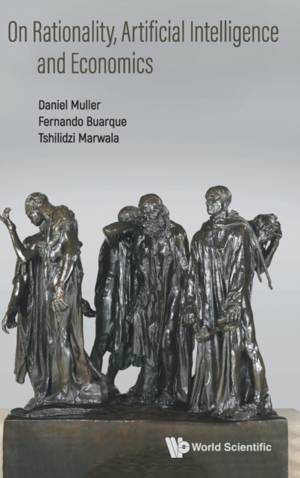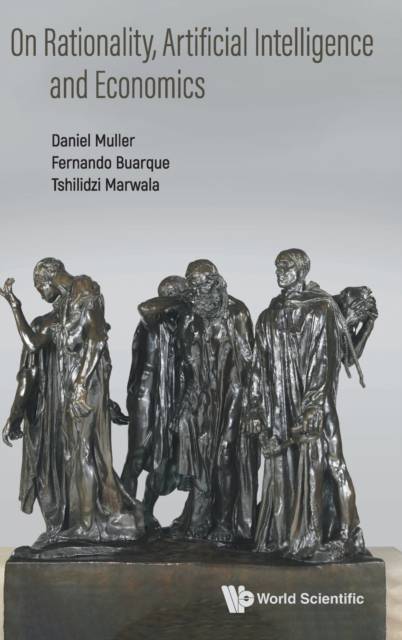
Bedankt voor het vertrouwen het afgelopen jaar! Om jou te bedanken bieden we GRATIS verzending (in België) aan op alles gedurende de hele maand januari.
- Afhalen na 1 uur in een winkel met voorraad
- In januari gratis thuislevering in België
- Ruim aanbod met 7 miljoen producten
Bedankt voor het vertrouwen het afgelopen jaar! Om jou te bedanken bieden we GRATIS verzending (in België) aan op alles gedurende de hele maand januari.
- Afhalen na 1 uur in een winkel met voorraad
- In januari gratis thuislevering in België
- Ruim aanbod met 7 miljoen producten
Zoeken
On Rationality, Artificial Intelligence and Economics
Daniel Muller, Fernando Buarque, Tshilidzi Marwala
Hardcover | Engels
€ 134,45
+ 268 punten
Omschrijving
The world we live in presents plenty of tricky, impactful, and hard-tomake decisions to be taken. Sometimes the available options are ample, at other times they are apparently binary, either way, they often confront us with dilemmas, paradoxes, and even denial of values.In the dawn of the age of intelligence, when robots are gradually taking over most decision-making from humans, this book sheds a bit of light on decision rationale. It delves into the limits of these decision processes (for both humans and machines), and it does so by providing a new perspective that is somehow opposed to orthodox economics. All Economics reflections in this book are underlined and linked to Artificial Intelligence.The authors hope that this comprehensive and modern analysis, firmly grounded in the opinions of various groundbreaking Nobel laureate economists, may be helpful to a broad audience interested in how decisions may lead us all to flourishing societies. That is, societies in which economic blunders (caused by over simplification of problems and super estimation of tools) are reduced substantially.
Specificaties
Betrokkenen
- Auteur(s):
- Uitgeverij:
Inhoud
- Aantal bladzijden:
- 252
- Taal:
- Engels
Eigenschappen
- Productcode (EAN):
- 9789811255113
- Verschijningsdatum:
- 7/04/2022
- Uitvoering:
- Hardcover
- Formaat:
- Genaaid
- Afmetingen:
- 152 mm x 229 mm
- Gewicht:
- 508 g

Alleen bij Standaard Boekhandel
+ 268 punten op je klantenkaart van Standaard Boekhandel
Beoordelingen
We publiceren alleen reviews die voldoen aan de voorwaarden voor reviews. Bekijk onze voorwaarden voor reviews.









